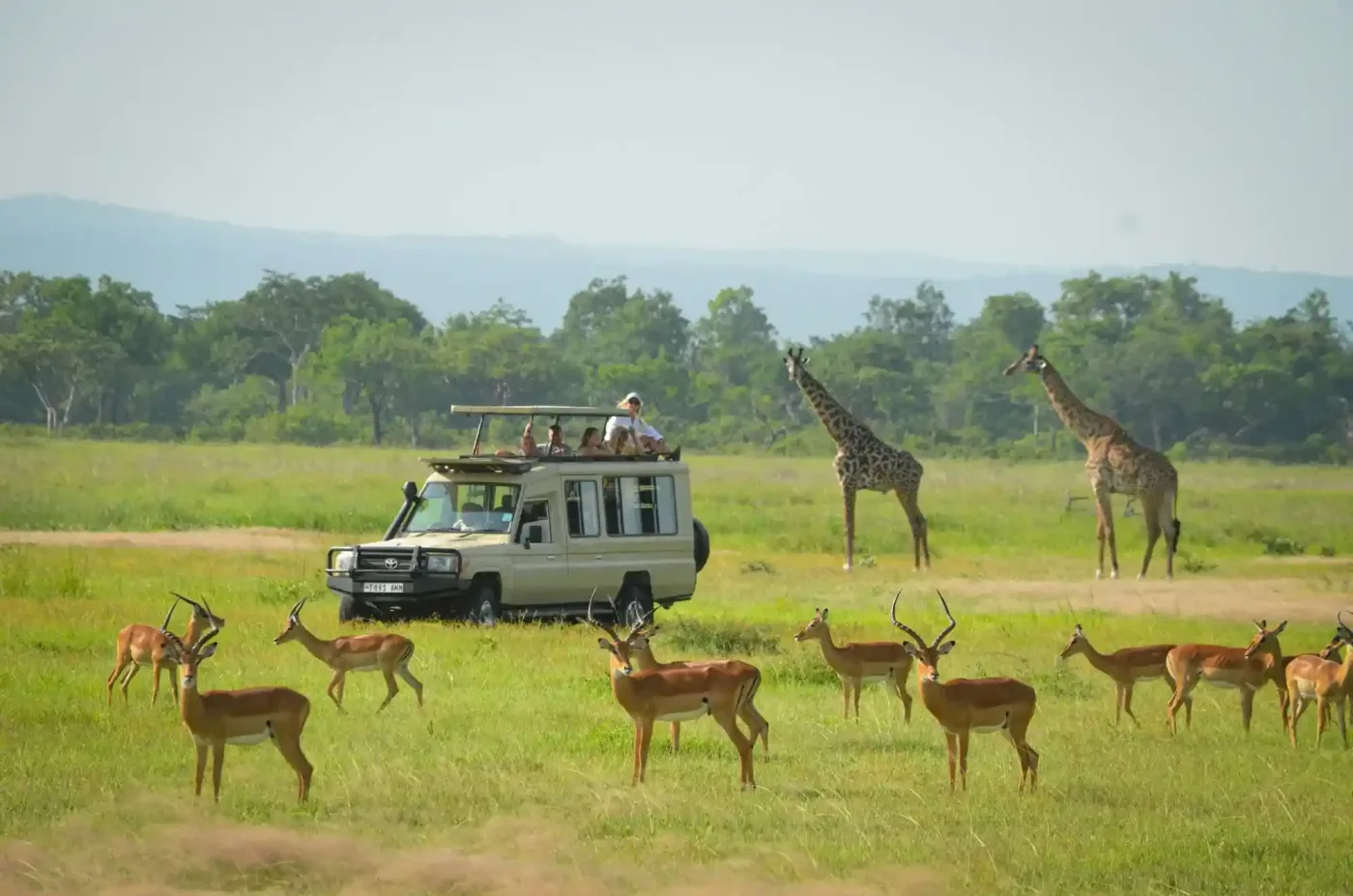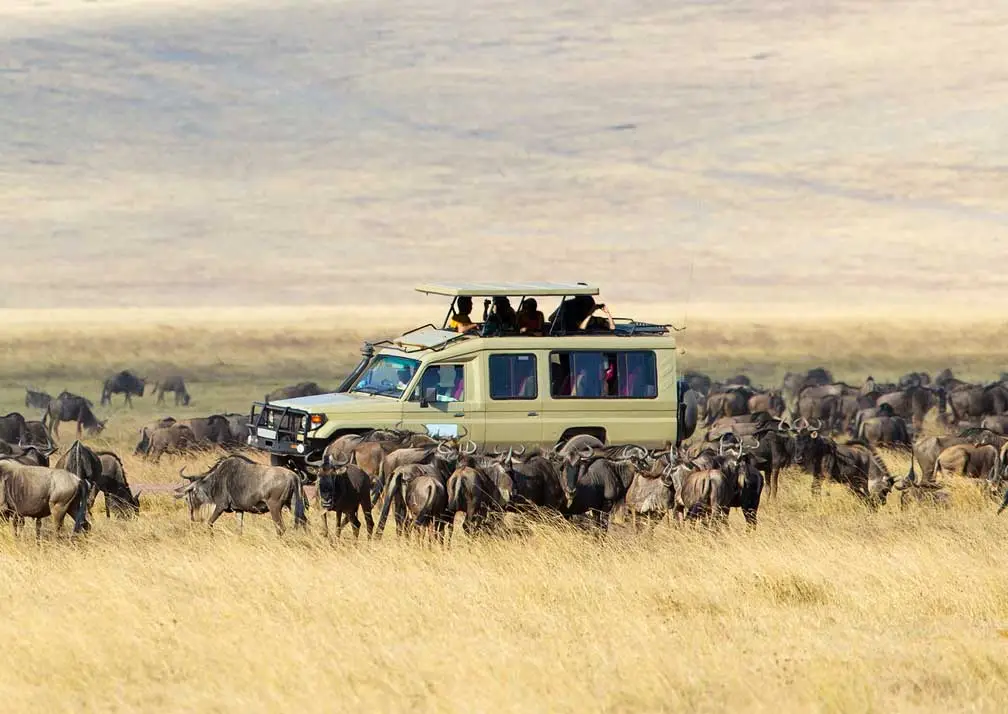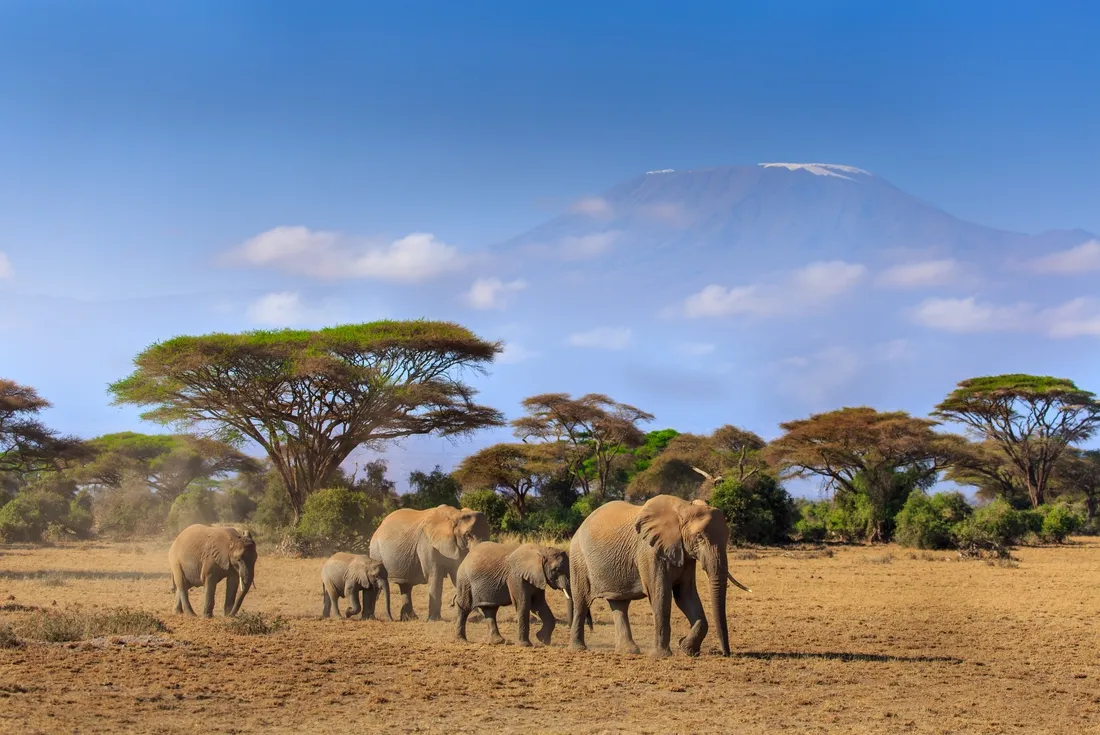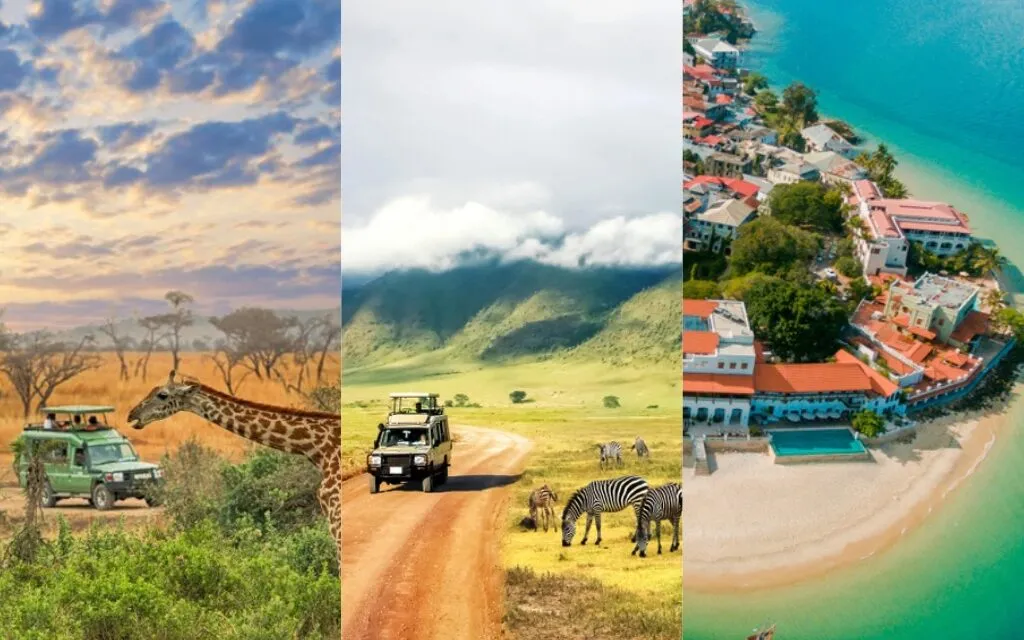Health & Safety Tips for Tanzania Safari Travelers
Staying healthy and safe is key to making the most of your safari adventure in Tanzania. Simple precautions like using insect repellent, staying hydrated, and wearing sun protection go a long way. It’s also wise to travel with basic medications, follow your guide’s instructions around wildlife, and keep important documents secure. Whether you’re exploring the Serengeti or Ngorongoro Crater, our expert tips ensure you’re prepared for a worry-free journey. Let’s dive into the essential health and safety advice to make your safari unforgettable.
Start Planning Safely
Your Ultimate Guide to Health & Safety on a Tanzania Safari
Planning a Tanzania safari is thrilling, but preparation is crucial to ensure your health and safety. With Capable Africa Tours, you’ll have expert guides and resources to keep you secure in the wild. This comprehensive guide covers vaccinations, malaria prevention, wildlife safety, water safety, packing tips, and emergency preparedness. Whether you’re a solo traveler or with family, these practical tips will help you enjoy Serengeti, Ngorongoro, and beyond with peace of mind.
Why Health & Safety Matters on a Tanzania Safari
Tanzania’s national parks offer incredible wildlife experiences, but the remote wilderness and tropical climate present unique challenges. From preventing insect-borne diseases to respecting wildlife boundaries, proper precautions ensure your adventure is both safe and enjoyable. Capable Africa Tours prioritizes your well-being with trained guides, safe vehicles, and detailed pre-trip advice.
Vaccinations and Medical Preparations
Before your Tanzania safari, consult a travel clinic 4–6 weeks in advance to get the necessary vaccinations and medications. Here’s what you need to know:
- Yellow Fever: Mandatory if traveling from a yellow fever endemic country (e.g., Kenya, Uganda). Carry your vaccination certificate, as it may be checked at entry points like Kilimanjaro International Airport.
- Hepatitis A and Typhoid: Recommended due to potential exposure through food or water. Hepatitis A vaccination provides long-term protection, while typhoid lasts about 3 years.
- Malaria Prophylaxis: Tanzania is a malaria-endemic country. Common options include Malarone, doxycycline, or Lariam. Start your course before travel, as advised by your doctor.
- Routine Vaccinations: Ensure you’re up to date on measles-mumps-rubella (MMR), diphtheria-tetanus-pertussis, and polio vaccines.
- Rabies (Optional): Consider for extended stays or if you plan to interact with animals. Pre-exposure vaccination simplifies treatment if bitten.
According to the CDC, malaria cases in Tanzania account for approximately 5% of global cases, with over 90% of the population living in malaria-risk areas. Vaccination compliance reduces health risks by up to 95% for diseases like hepatitis A.
Tip: Capable Africa Tours recommends carrying a digital or physical copy of your vaccination records and prescriptions for verification.
Malaria Prevention Tips
Malaria is a significant concern in Tanzania, especially in low-lying areas like Serengeti and Tarangire. Follow these practical steps to stay protected:
- Take Prophylaxis: Start medications like Malarone or doxycycline as prescribed (usually 1–2 days before travel and continuing 1–4 weeks after).
- Use Insect Repellent: Apply DEET-based repellent (30–50% concentration) on exposed skin, especially at dawn and dusk when mosquitoes are active.
- Wear Protective Clothing: Opt for long-sleeved shirts, long pants, and socks in light, neutral colors to deter mosquitoes and tsetse flies.
- Sleep Under Mosquito Nets: Most lodges and camps provide treated nets. Ensure they’re tucked in properly to avoid gaps.
- Avoid Stagnant Water: Mosquitoes breed in standing water, so steer clear of puddles or swampy areas during game drives.
Travelers report that combining prophylaxis with physical barriers (nets, clothing) significantly reduces mosquito bites, enhancing their safari experience. Capable Africa Tours ensures all accommodations include mosquito nets and repellent supplies.
Wildlife Safety Guidelines
Tanzania’s wildlife, from lions to elephants, is awe-inspiring but requires respect. Follow these safety guidelines during your safari with Capable Africa Tours:
- Stay in the Vehicle: Never exit the safari vehicle during game drives unless instructed by your guide. Animals may perceive you as a threat if you’re on foot.
- Maintain Distance: Keep at least 20–30 meters from wildlife. Use binoculars or a zoom lens for close-up views without disturbing animals.
- Avoid Feeding Animals: Feeding wildlife disrupts their natural behavior and can lead to dangerous encounters.
- Stay Quiet: Loud noises or sudden movements can startle animals, potentially causing aggressive reactions.
- Follow Nighttime Rules: At camps, avoid walking alone at night. Use a flashlight and stay within designated areas to avoid encounters with nocturnal animals.
Tanzania National Parks (TANAPA) reports fewer than 0.01% of safari incidents involve wildlife attacks when guidelines are followed, highlighting the effectiveness of proper precautions.
Water and Food Safety
Safe water and food practices are critical to avoid illnesses like traveler’s diarrhea. Here’s how to stay healthy:
- Drink Bottled Water: Always use sealed bottled water or purified water provided by Capable Africa Tours. Avoid tap water, ice, or unfiltered water.
- Eat Cooked Foods: Choose hot, freshly cooked meals. Avoid raw vegetables or fruits unless peeled by you.
- Use Hand Sanitizer: Clean hands before eating, especially after game drives or handling money. Carry a small bottle of sanitizer (at least 60% alcohol).
- Avoid Street Food: While tempting, street food may not meet hygiene standards. Stick to meals at reputable lodges or camps.
Tip: Capable Africa Tours provides bottled water and safe meals during all safaris, ensuring you stay hydrated and healthy.
Packing for Health and Safety
Packing wisely for health and safety ensures you’re prepared for any situation while on safari in Tanzania. Include a well-stocked first aid kit with essentials like bandages, antiseptic wipes, pain relievers, and any personal medications. Don’t forget insect repellent, sunscreen, and hand sanitizer to protect yourself from common travel risks. A reusable water bottle with purification tablets or a filter is also recommended to stay hydrated safely. Here’s a detailed packing list for health and safety:
- First Aid Kit Essentials
- Adhesive bandages (various sizes)
- Antiseptic wipes & antibiotic cream
- Pain relievers (ibuprofen, paracetamol, etc.)
- Blister pads or moleskin for feet
- Motion sickness tablets
- Antihistamines for allergies
- Personal prescription medications (in original packaging)
- Protection Against Insects & Sun
- Insect repellent with DEET or picaridin
- Mosquito repellent wipes (for quick use)
- Sunscreen (SPF 30 or higher, broad spectrum)
- Lip balm with SPF
- After-sun lotion or aloe gel
- Hygiene & Sanitation
- Hand sanitizer (travel size & full size)
- Wet wipes or biodegradable tissues
- Reusable face mask or buff (helps against dust on game drives)
- Small pack of soap sheets or eco-friendly travel soap
- Hydration & Water Safety
- Reusable water bottle or hydration bladder
- Water purification tablets or portable filter
- Oral rehydration salts/electrolyte packets
- Travel & Safety Extras
- Copy of passport & travel insurance (kept separate from originals)
- Emergency contact list
- Small flashlight or headlamp with spare batteries
- Whistle for emergencies
Tip: Capable Africa Tours provides a complimentary packing checklist tailored to your safari itinerary.
Emergency Preparedness
While rare, emergencies can happen. Be prepared with these steps:
- Travel Insurance: Purchase comprehensive insurance covering medical emergencies and evacuation. AMREF Flying Doctors offers reliable evacuation services in Tanzania.
- Know Local Clinics: Major safari hubs like Arusha have clinics (e.g., Arusha Lutheran Medical Centre). Capable Africa Tours provides emergency contact details.
- Carry Emergency Numbers: Save Capable Africa Tours’ 24/7 hotline (+255699077393) and local emergency numbers (e.g., 112 for general emergencies).
- Share Itinerary: Inform family or friends of your safari schedule and accommodation details.
AMREF Flying Doctors conducts over 1,000 medical evacuations annually in East Africa, ensuring rapid response for safari travelers.
Safety Tips for Solo Travelers
Solo travelers can enjoy Tanzania safaris safely with these tips:
- Join Group Safaris: Opt for group tours with Capable Africa Tours for added safety and social interaction.
- Stay Connected: Use a local SIM or eSIM (e.g., Airalo) for reliable communication in remote areas.
- Avoid Night Walks: Stay within camp boundaries after dark and follow guide instructions.
- Secure Valuables: Use lodge safes for passports, cash, and electronics.
Solo travelers often praise group safaris for fostering camaraderie while ensuring safety through professional guidance.
Environmental and Cultural Safety
Respecting Tanzania’s environment and culture enhances safety and enriches your experience:
- Avoid Littering: Keep parks clean to protect wildlife and ecosystems. Capable Africa Tours follows eco-friendly practices.
- Respect Local Communities: Ask permission before photographing people, especially Maasai communities, and dress modestly in villages.
- Conserve Resources: Use water and electricity sparingly, as many camps rely on limited resources.
Plan Your Safe Safari with Capable Africa Tours
Ready for a safe and thrilling Tanzania safari? Capable Africa Tours ensures your health and safety with expert guides, comprehensive pre-trip advice, and eco-friendly practices. From vaccinations to wildlife safety, we’ve got you covered for an unforgettable adventure in Serengeti, Ngorongoro, and beyond.
- 95% Traveler Safety Satisfaction Rate
- Customized Health and Safety Briefings
- Expert Local Guides Trained in Safety Protocols
- Eco-Friendly Camps with Mosquito Nets
- 24/7 Emergency Support Hotline



